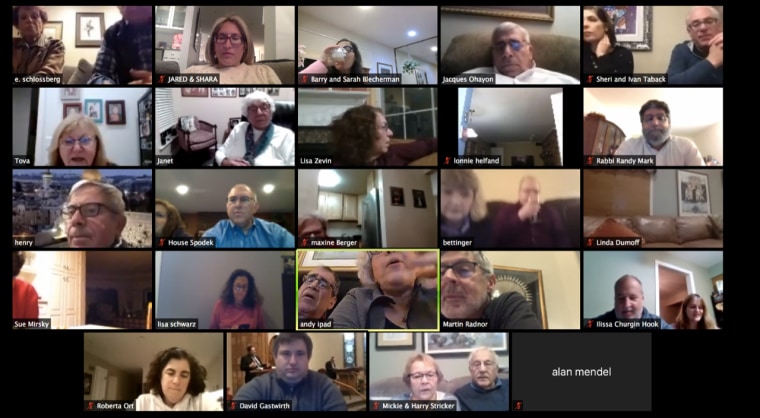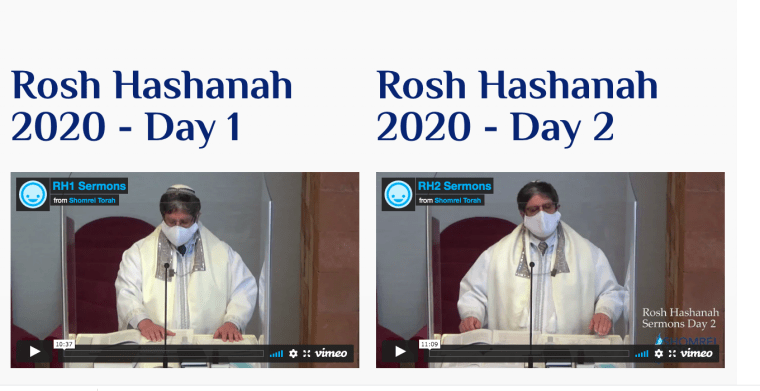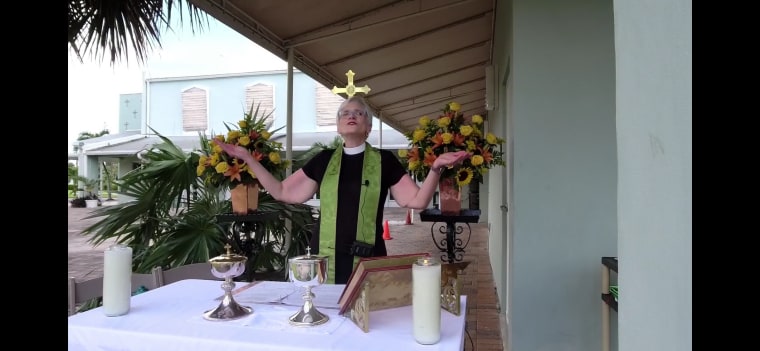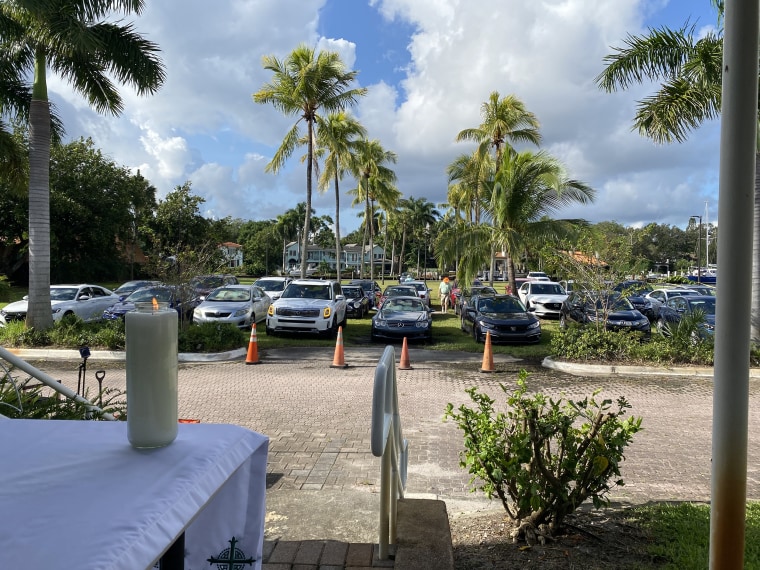With the coronavirus still spreading at record numbers in the United States, people have opted to skip attending religious services in person and instead explore virtual services from the safety of home.
An increasing number of churches, temples, synagogues, mosques and other places of worship are offering livestream services that extend far beyond the local community they'd usually attract.
Amber Padilla lives in Denver, but has been attending Transformation Church in Tulsa, Oklahoma, from her home every Sunday. (The church is an early adopter of livestreaming and was broadcasting services even before the pandemic.)
"I have a lot of friends from all over the world that attend Transformation Church virtually and I love that we can connect about the sermons even though we are not attending together in person," Padilla told TMRW. "We’re able to really build some meaningful relationships with God and each other."
Churchome, a megachurch with five locations in California and Washington State, added a Church@Home feature to its app last year, which lets people stream services. Viewership has grown 400% compared to 2019, according to David Kroll, CEO of Churchome. There have also been more than 20,000 conversations during the pandemic using the new "Pastor Chat" feature on the app, which lets anyone ask a pastor a question.
“We are living in an increasingly digital age, and the pandemic has encouraged the church, not just Churchome but the global church, to utilize technology to reach people," Kroll said.
“Church is so much about community as much as it is about God..."
Kathy Dean, choir member at All Saints Episcopal Church in Fort Lauderdale, Florida
While some services have turned into a full-blown television operation — with several cameras and a control room — others are relying on simple Zoom calls to bring their faithful together.
When the pandemic caused his synagogue to close, Rabbi Randall Mark of Shomrei Torah in Wayne, New Jersey, started leading services twice a day from his living room over Zoom, using his laptop to broadcast to members. His second Friday service was initially held before Shabbat, which begins at sundown every Friday and ends Saturday after sundown. Some Jewish people refrain from using electrical devices during that period.

"As we approached Passover, it was one of those years where it fell out. Passover was on Thursday and Friday running into Shabbat," Mark said. "We have a number of seniors in the community and they were showing up twice daily. The idea of going dark for 72 hours didn’t seem right, so we made the decision to use Zoom on Shabbat."
Mark led services for the High Holy Days, Rosh Hashannah and Yom Kippur, from the sanctuary in front of a small number of members and livestreamed to the rest of the Shomrei Torah community. It grew to include people in North Carolina, Florida and New York and even adults who moved out of the community but wanted to reconnect with the synagogue they attended as children.

"We heard from people they couldn’t imagine what it would be like, and some people talked about having a better seat than normal. It was up close and personal," Mark said.
Shomrei Torah is also getting children involved. On the first Friday of every month, Mark leads "tot Shabbat," where he sings songs and helps younger members get ready for the next big Jewish holiday.

At All Saints Episcopal Church in Fort Lauderdale, Florida, Mother Leslie Hague delivered her Sunday sermon to an audience of members who stayed in their cars and watched her speak from a lectern at Brion Park.
All Saints offers livestreams for members to watch from home, but the event on Dec. 13 was the first time many in the community had the opportunity to see each other (albeit through their car windows) since the start of the pandemic.
On the way out of services, cars lined up for a drive-thru communion service. Hague said everyone wore masks and she dropped the host (bread) into each person's hand to reduce contact, instead of pressing it into their palms. All Saints is skipping the wine sacrament, since traditionally everyone drinks from the same cup.

Kathy Dean, who has attended All Saints for 18 years and sings in the choir, said it felt "joyous" to wave to her friends at church, even if they were in their cars.
“Church is so much about community as much as it is about God, so to be worshiping from home … I live alone and that was a big shift for me to see people remotely but not physically present," she said.
Hague started the livestreams in March by just using her iPad to broadcast daily prayer services to the community.
"Technologically, it was a stretch at first," Hague said. "But we now have two cameras and lots of mics. It has grown quite a bit, although we still sometimes experience tech difficulties," she said.
When a few technical snafus happened on a recent Sunday, it just so happened to work perfectly for her sermon.
"I talked about how we want things to be the same, but that’s not how the world works or how God works," she said. "When things go awry, it’s God saying keep on your toes.”
